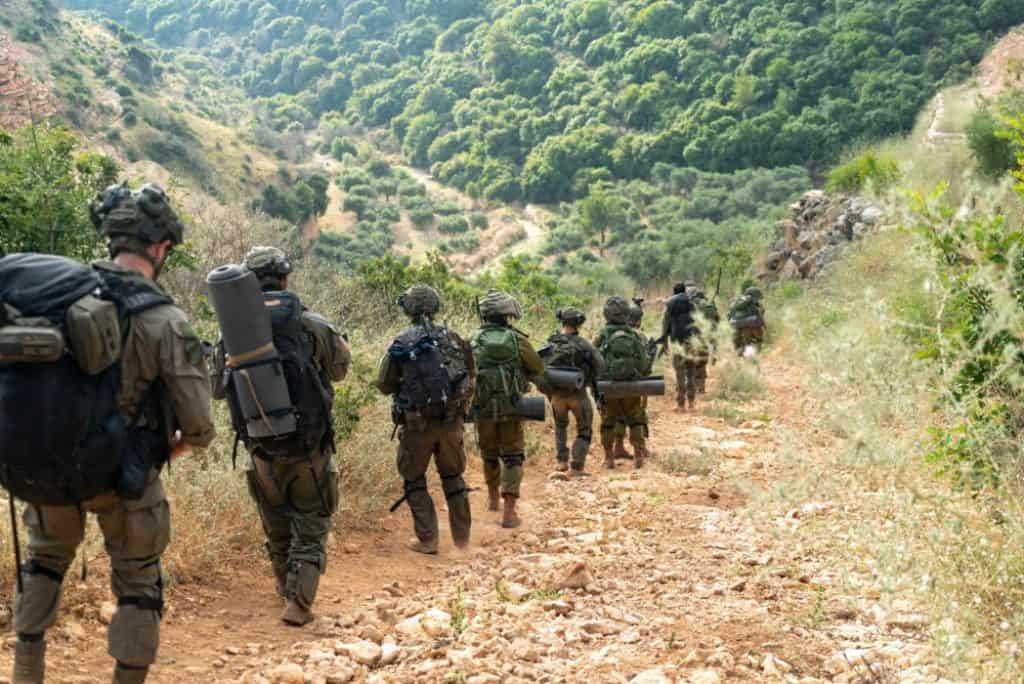IDF trains for war in the north as Iranian proxies threaten attacks from Iraq and Yemen


Israeli Prime Minister Benjamin Netanyahu and Israel Defense Forces Chief of Staff Lt. Gen. Herzi Halevi took part in army exercises in northern Israel on June 25 and 26. The exercises are part of an eight-month training program that various Israeli units stationed in the north have undergone to prepare for a possible war with Hezbollah.
The exercises took place while Israeli President Isaac Herzog spent two days visiting communities in northern Israel. Herzog visited the city of Safed as well as communities near the Lebanese border, such as the Christian town of Jish and Kibbutz Hanita.
Netanyahu arrived in northern Israel on June 25 to meet members of the 55th Reserve Paratrooper Brigade participating in an exercise. “The exercise is one of several exercises being conducted by IDF brigades to increase fitness and evaluate plans for an attack in Lebanon,” the Prime Minister’s Office said. Netanyahu met with the head of the IDF’s Northern Command, Major General Ori Gordin, as well as brigade and battalion commanders. Netanyahu’s new military secretary, Major General Roman Gofman, accompanied him.
Netanyahu commented that the exercise he had seen was “very impressive in terms of capabilities, mobilization and implementation.” The 55th The brigade fought during the first operations against Hamas in Gaza in December. The unit took part in the decisive battle for Khan Younis in southern Gaza before being redeployed in late January.
Halevi attended the brigade exercise on June 26, a day after the Prime Minister, and also met with Gordin and the head of the 55th Brigade, Colonel Oded Ziman. “During the multi-service exercise, the brigade’s combat team trained in extreme scenarios, fighting in complex and mountainous terrain, activating fire, and urban warfare as part of increasing operational readiness in the northern area,” the IDF said.
Images of the exercise released by the Israeli army showed soldiers marching through rough terrain, including hills dotted with olive trees and small streams, toward a village in northern Israel. These villages and terrain resemble those in southern Lebanon.
The latest training is one of many programs the Israel Defense Forces has conducted with various units stationed in the north. The troops are a mix of reservists, such as the 146th Division and regular soldiers, such as the infantry and tank brigades of the 36th.th Division. The aim of the training is not only to practice scenarios that may arise in the fight against Hezbollah in Lebanon, but also to address the need for close cooperation with the air force, navy and other units that could be deployed if Israel faces further cross-border attacks by rockets, missiles and drones.
Israel is currently facing threats on several fronts. An Iranian-backed militia in Iraq attacked the southern Israeli port city of Eilat with a drone on the evening of June 25. The drone arrived near the city at 2 a.m. on June 26 and was attacked by Israeli air defenses. The Israel Defense Forces said the drone came from the direction of the Red Sea and “crashed off the coast of Eilat. The drone was observed by Israeli soldiers throughout the incident and did not enter Israeli territory. During the incident, an interceptor was launched in the direction of the drone.”
It was unclear if the drone was intercepted or fell into the water on its own. Although the drone was launched from Iraq, it would have had to take a circuitous route to reach Israel from the Red Sea, and likely would have had to cross Jordan or Saudi Arabia to reach that flight path. On June 25, the Iran-backed Houthis in Yemen also claimed to have attacked several vessels at sea as part of their eight-month campaign against ships heading to the Red Sea. In addition, on June 26, Hezbollah claimed responsibility for several attacks on Israel, including launching anti-tank missiles at the northern city of Metulla.
In Washington, Israel’s Defense Minister Yoav Gallant continued high-level talks to solidify support and coordinate cooperation with the United States. On June 26, he met with U.S. National Security Advisor Jake Sullivan. “We have made significant progress in building up forces and supplying ammunition to the State of Israel,” Gallant said. The talks focused on the war against Hamas in Gaza, Hezbollah threats and the broader Iranian threat to Israel and the region.



